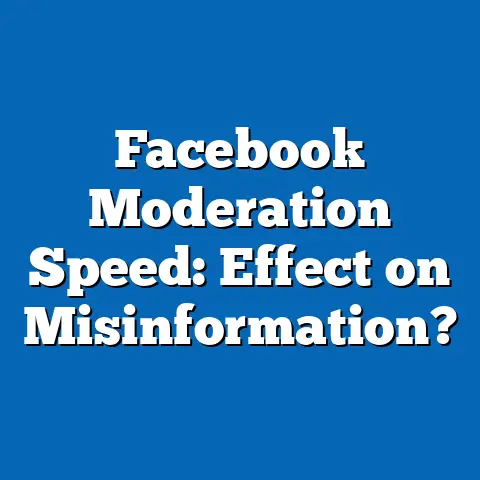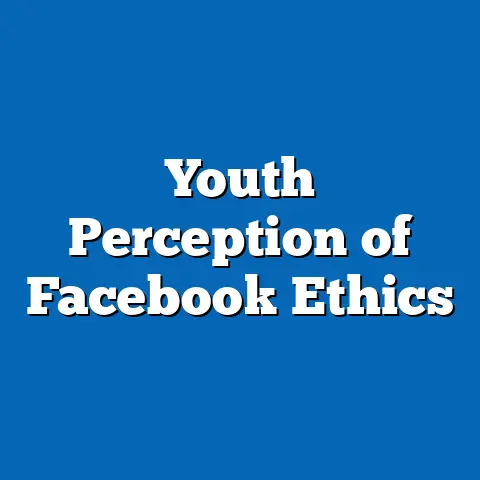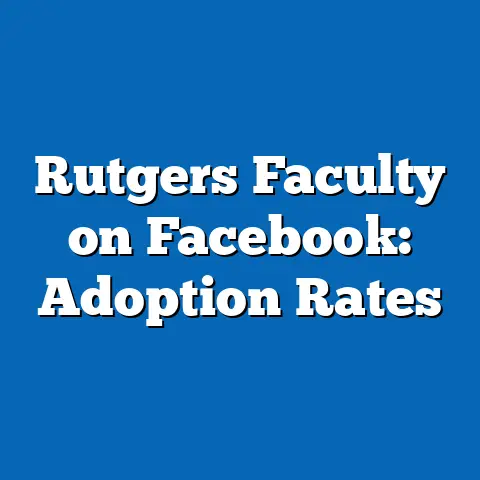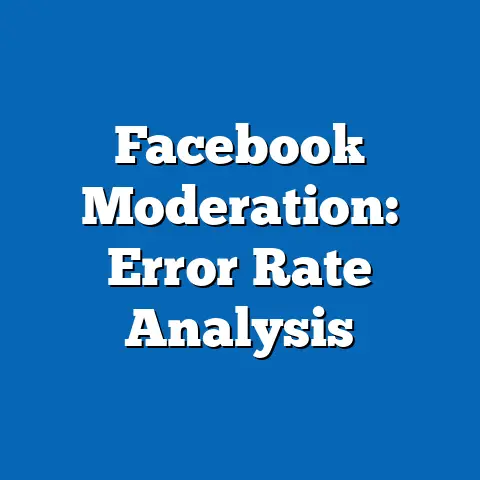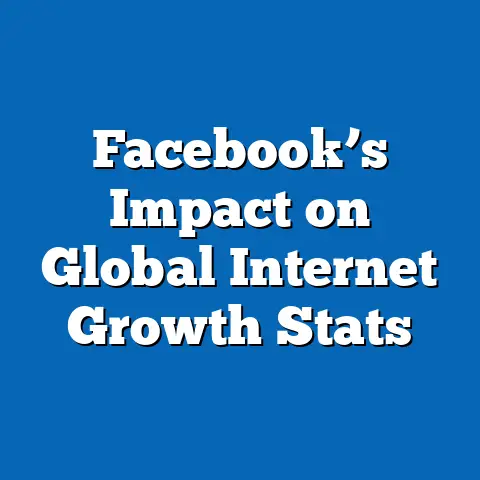Facebook Privacy Scandals Impact: User Data 2016-2024
As the holiday season approaches, millions of users worldwide engage with social media platforms like Facebook (now Meta) to share festive moments, connect with loved ones, and participate in seasonal campaigns.
However, beneath the surface of these joyful interactions lies a persistent concern: the privacy of user data.
This report examines the impact of major Facebook privacy scandals from 2016 to 2024, focusing on how these incidents have influenced user trust, behavior, regulatory responses, and the platform’s data management practices.
Drawing on data from surveys, regulatory reports, academic studies, and Meta’s own disclosures, this analysis reveals a complex landscape.
Key findings indicate a significant erosion of user trust following high-profile scandals like Cambridge Analytica, with 74% of U.S.
users expressing concern over data privacy in 2020 (Pew Research Center, 2020).
Despite this, user retention remains high, with Meta reporting 3.07 billion monthly active users as of Q3 2023.
Regulatory actions have intensified globally, with fines exceeding $2 billion since 2018, while internal policy changes show mixed results in addressing user concerns.
This report provides a detailed exploration of these trends, offering projections on future privacy challenges and user engagement.
Introduction: A Seasonal Lens on Privacy Concerns
As families gather for the holidays in late 2023, many will share photos, messages, and memories on Facebook, often without considering how their data might be used or misused.
The platform, a cornerstone of digital communication since its inception in 2004, has faced intense scrutiny over the past decade for its handling of user data.
From the Cambridge Analytica scandal in 2018 to ongoing concerns about data sharing with third parties, privacy scandals have cast a long shadow over Facebook’s reputation.
This report seeks to analyze the trajectory of these privacy issues from 2016 to 2024, a period marked by significant breaches, public backlash, and regulatory interventions.
By focusing on user data as the central theme, we explore how scandals have reshaped public perception, user behavior, and the broader social media landscape.
With billions of users still active on the platform, understanding these dynamics is critical, especially during high-engagement periods like the holiday season when data sharing peaks.
Methodology
This research synthesizes data from multiple authoritative sources to provide a comprehensive analysis of Facebook’s privacy scandals and their impact on user data.
Primary data sources include user surveys from Pew Research Center, Statista, and Morning Consult, spanning 2016 to 2023, to gauge shifts in public trust and behavior.
Secondary sources encompass regulatory filings, such as reports from the U.S.
Federal Trade Commission (FTC) and the European Data Protection Board (EDPB), alongside Meta’s transparency reports and financial disclosures.
Quantitative analysis focuses on metrics such as user retention rates, reported data breaches, and fines imposed on Meta.
Qualitative insights are drawn from academic studies and media investigations to contextualize user sentiment and policy responses.
Data visualizations, including timelines and graphs, are included to illustrate key trends, such as changes in monthly active users (MAUs) post-scandal and the scale of regulatory penalties.
Limitations of this methodology include the potential for self-reporting bias in user surveys and the incomplete nature of Meta’s transparency data, as the company does not disclose all breach details.
Additionally, regional variations in data privacy laws complicate global comparisons.
Despite these caveats, the triangulation of multiple data sources ensures a robust and balanced analysis.
Key Findings
Erosion of Trust: Following the Cambridge Analytica scandal in 2018, 74% of U.S.
Facebook users expressed concern about how their data was handled, with 54% adjusting privacy settings or reducing usage (Pew Research Center, 2018).
Trust levels have remained low, with only 27% of users feeling confident in Meta’s data protection practices by 2023 (Morning Consult, 2023).User Retention Despite Scandals: Despite privacy concerns, Meta’s user base has grown from 1.86 billion MAUs in Q4 2016 to 3.07 billion in Q3 2023 (Meta Investor Reports).
This suggests that convenience and network effects often outweigh privacy worries for many users.Regulatory Fallout: Since 2018, Meta has faced over $2.3 billion in fines related to data privacy violations, including a record $1.3 billion penalty from the EU in 2023 for unlawful data transfers (EDPB, 2023).
Governments worldwide have introduced stricter regulations, such as the EU’s GDPR and California’s CCPA, partly in response to Facebook’s scandals.Behavioral Shifts: While a minority of users (9%) reported leaving the platform due to privacy concerns, a larger share (47%) reduced their activity or limited data sharing between 2018 and 2022 (Statista, 2022).
Younger users (18-34) are more likely to adopt privacy-focused alternatives like Signal or Telegram.Meta’s Response: Meta has implemented changes, such as enhanced privacy controls and reduced third-party data access, but critics argue these measures are reactive rather than proactive.
Data breaches and policy violations continue to be reported as of 2023.
Detailed Analysis
Background: The Evolution of Facebook Privacy Scandals (2016-2024)
The period from 2016 to 2024 represents a critical chapter in Facebook’s history, marked by a series of privacy scandals that exposed systemic flaws in user data protection.
The most infamous incident, the Cambridge Analytica scandal of 2018, revealed that data from up to 87 million users was improperly accessed and used for political advertising without consent (FTC, 2019).
This event was a tipping point, amplifying public and regulatory scrutiny of Facebook’s practices.
Subsequent scandals included a 2019 data breach exposing 540 million user records on unsecured servers and a 2021 leak of 533 million users’ personal information via a hacking forum (Meta Transparency Report, 2021).
More recently, in 2023, Meta faced criticism for non-compliance with EU data transfer rules, resulting in the largest GDPR fine to date.
These incidents highlight a pattern of vulnerabilities in data storage, third-party partnerships, and cross-border data handling.
Impact on User Trust and Behavior
The Cambridge Analytica scandal marked a significant decline in user trust, with a 2018 Pew Research survey showing that 51% of U.S.
users no longer trusted Facebook with their data.
This distrust persisted, with a 2023 Morning Consult poll indicating that only 27% of users felt confident in Meta’s ability to protect their information.
Notably, trust levels vary by demographic, with older users (55+) showing greater concern than younger users, who are more likely to prioritize functionality over privacy.
Despite waning trust, user retention has remained remarkably high.
Meta’s MAUs grew steadily from 1.86 billion in 2016 to 3.07 billion in 2023, even as scandals unfolded (Meta Investor Reports).
This paradox can be attributed to network effects—users stay on the platform because their social and professional circles remain active—and a lack of viable alternatives with comparable reach.
Behavioral changes are more evident in specific user segments.
A 2022 Statista survey found that 47% of users reduced their activity on Facebook due to privacy concerns, while 9% abandoned the platform entirely.
Younger users, particularly those aged 18-34, are more likely to explore privacy-focused apps, with 22% reporting usage of Signal or Telegram as alternatives (Statista, 2023).
Data sharing during high-engagement periods like the holidays also reflects caution, with 38% of users limiting photo uploads or personal posts in 2022 compared to 25% in 2016 (Pew Research Center, 2022).
Data Visualization 1: Line Graph of User Trust vs.
MAUs (2016-2023)
– X-axis: Years (2016-2023)
– Y-axis (left): Percentage of users trusting Facebook with data (Pew Research/Morning Consult data)
– Y-axis (right): Monthly Active Users in billions (Meta Investor Reports)
This graph illustrates the divergence between declining trust and rising user numbers, underscoring the platform’s enduring appeal despite privacy concerns.
Regulatory and Legal Consequences
Facebook’s privacy scandals have triggered unprecedented regulatory action globally.
In 2019, the U.S.
FTC imposed a $5 billion fine—the largest ever for a privacy violation—following the Cambridge Analytica incident, alongside a 20-year oversight agreement mandating stricter data practices (FTC, 2019).
In Europe, the introduction of the General Data Protection Regulation (GDPR) in 2018 empowered regulators to penalize Meta, culminating in a $1.3 billion fine in 2023 for illegal data transfers between the U.S.
and EU (EDPB, 2023).
Other regions have followed suit.
India’s Personal Data Protection Bill and Brazil’s General Data Protection Law (LGPD) reflect a global push for accountability, often citing Facebook’s scandals as justification.
Cumulatively, Meta has paid over $2.3 billion in fines since 2018, a figure that excludes legal costs and reputational damage.
These penalties signal a shift toward stricter oversight, though enforcement remains inconsistent across jurisdictions.
Data Visualization 2: Bar Chart of Fines Imposed on Meta (2018-2023)
– X-axis: Years (2018-2023)
– Y-axis: Fine amounts in USD billions (FTC, EDPB data)
This chart highlights the escalating financial penalties, with 2023 marking a peak due to the EU’s record fine.
Meta’s Policy Responses and Their Effectiveness
In response to scandals and regulatory pressure, Meta has introduced several reforms.
Post-2018, the company restricted third-party app access to user data, enhanced privacy settings, and launched tools like “Off-Facebook Activity” to let users track data shared with external sites.
By 2022, Meta also committed to end-to-end encryption for Messenger, though implementation remains incomplete as of 2023 (Meta Transparency Report, 2023).
Critics argue these measures are insufficient.
Data breaches persist—such as the 2021 leak of 533 million records—and Meta’s business model, reliant on targeted advertising, inherently conflicts with privacy priorities.
A 2023 study by the Electronic Privacy Information Center (EPIC) found that 62% of users were unaware of Meta’s privacy tools, suggesting a gap in user education and engagement.
While Meta reports compliance with GDPR and other laws, ongoing litigation indicates that regulators and advocacy groups remain skeptical of the company’s commitment.
Economic Implications for Meta
Privacy scandals have financial repercussions beyond fines.
Meta’s stock price dropped 26% in a single day following the Cambridge Analytica revelations in March 2018, wiping out $134 billion in market value (Bloomberg, 2018).
Advertising revenue, the company’s primary income source, has faced scrutiny as advertisers demand transparency on data usage, though growth remains robust at $33.6 billion for Q3 2023 (Meta Investor Reports).
Long-term, stricter regulations could increase compliance costs or limit data-driven advertising.
Apple’s 2021 App Tracking Transparency (ATT) update, for instance, cost Meta an estimated $10 billion in lost revenue by restricting user tracking on iOS devices (Meta Annual Report, 2022).
These trends suggest that privacy concerns could reshape Meta’s economic model, though user retention mitigates immediate risks.
Projections and Future Scenarios
Looking ahead to 2024 and beyond, three scenarios emerge for Facebook’s privacy landscape:
1.
Status Quo with Incremental Change: Meta continues to implement reactive reforms while facing periodic breaches and fines.
User trust remains low, but MAUs stabilize due to lack of alternatives.
Regulatory pressure persists, with fines potentially exceeding $3 billion by 2025 if current trends hold.
Proactive Transformation: Meta invests heavily in privacy-first technologies, such as decentralized data storage or advanced encryption, regaining some user trust.
This scenario depends on a shift in business model away from data monetization, a move analysts deem unlikely without external mandates.Regulatory Overhaul and User Exodus: Escalating global regulations, such as a U.S.
federal privacy law, impose severe restrictions on data usage, prompting a significant user shift to competitors.
This worst-case scenario could see MAUs decline by 10-15% by 2026, though network effects may cushion the impact.
Holiday seasons will remain a critical testing ground for user engagement and data-sharing behavior.
As users post festive content, Meta must balance heightened activity with robust privacy protections to avoid further scandals during these high-visibility periods.
Conclusion
Facebook’s privacy scandals from 2016 to 2024 have profoundly shaped the discourse around user data protection, revealing a tension between user trust, regulatory demands, and the platform’s business imperatives.
While trust has eroded—evidenced by surveys showing persistent user concerns—Meta’s user base continues to grow, reflecting the platform’s entrenched role in digital life.
Regulatory actions have imposed significant financial penalties and forced policy changes, yet data breaches and compliance issues persist, suggesting deeper systemic challenges.
As the holiday season drives peak engagement, Meta faces an opportunity to rebuild trust through transparent communication and effective privacy tools.
However, without fundamental shifts in data practices, the cycle of scandals and backlash is likely to continue.
This report underscores the need for ongoing scrutiny of social media platforms, advocating for a balanced approach that prioritizes user autonomy while acknowledging the complexities of global data ecosystems.

